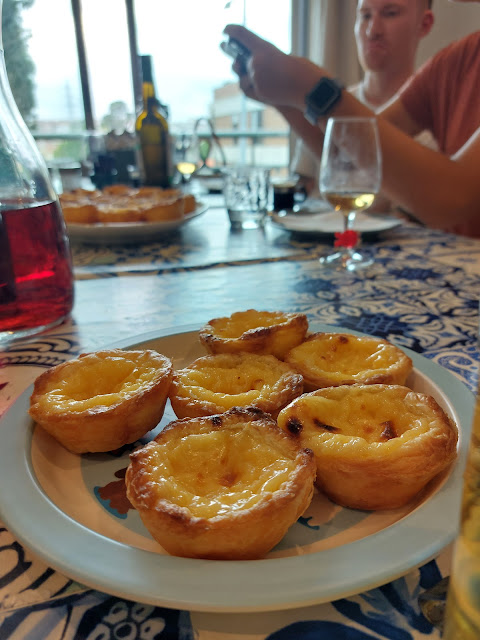Porto
After our time in the Douro Valley, we head back to Porto, return the hire car and land at our accommodation in the centre of the old town, Ribeira, which spills down the river bank. It’s joined to the city of Vila Nova de Gaia on the other side of the river by the impressive, two-tiered bridge, Ponte Luis I. We’re staying a stone’s throw from the river, so our first afternoon, we wander along the river and up and over the bridge.
The views are magnificent. There are the long white buildings of the Mosteiro da Serra do Pilar (a monastery); the narrow, colourful buildings of the town steeply stacked down the banks; churches, cathedrals and palaces like Igreja do Carmo, Se do Porto, Igreja Paroquial de Santo Ildefonso, Torre dos Clerigos and the Palacio da Bolsa; many wine cellars and the river itself. All very intoxicating to gaze across, especially from the Jardim do Morro, a park where everyone gathers to drink and smoke weed as the sun goes down.
Porto is packed to the gills with tourists (just like us… I tried coining a new term for when you get trapped in or behind a large group of slowly moving senior sightseers - a sludge of seniors? The great grey gloop? An elderly ooze? - all said with the utmost love for all the seniors in my life!). All of the locals we speak with mention the tug between the tourism dollar and the erosion of opportunities for locals to afford living there. There are also a remarkable number of decrepit buildings due to historical policies, current heritage overlays, the creep of airbnb and hyper-tourism and population shifts during the pandemic. It makes for a mixture of complicated feelings.
Some other Porto highlights:
Learning to make the national treat, Pastel de Nata (egg tarts) at a private home…
Visiting the Bolsa Palace, a very fancy place for something akin to a local chamber of commerce…
Taking a trip to the beaches near Foz do Douro. We find a restaurant that is in someone’s home and are treated to a beautiful meal with warm and attentive service…
Next stop: Tavira and Santa Luzia in the Algarve region
















Comments
Post a Comment